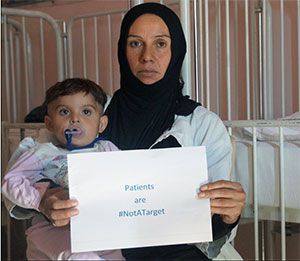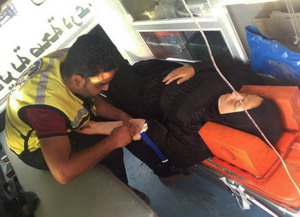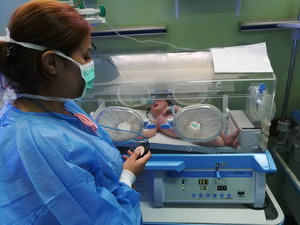Attacks on health care on the rise throughout Syria in first half of 2018, says WHO
 19 August 2018 – 8 years into the conflict in the Syrian Arab Republic, attacks on health care facilities and personnel in the country continue to rise despite United Nations resolutions strongly condemning these attacks. In the first 6 months of 2018, there were 126 separate attacks on health care in Syria – more than for the whole of 2017. Syria now accounts for a staggering 70% of all attacks on health care facilities documented by WHO worldwide.
19 August 2018 – 8 years into the conflict in the Syrian Arab Republic, attacks on health care facilities and personnel in the country continue to rise despite United Nations resolutions strongly condemning these attacks. In the first 6 months of 2018, there were 126 separate attacks on health care in Syria – more than for the whole of 2017. Syria now accounts for a staggering 70% of all attacks on health care facilities documented by WHO worldwide.
Critical funding shortage threatens WHO’s response in northwest Syria
 20 August 2018 – As the conflict in northwest Syria escalates, WHO is appealing for US$ 11 million to provide life-saving health care to people in parts of Aleppo, Hama, Idleb and Lattakia governorates.
20 August 2018 – As the conflict in northwest Syria escalates, WHO is appealing for US$ 11 million to provide life-saving health care to people in parts of Aleppo, Hama, Idleb and Lattakia governorates.
Hundreds of thousands of people, many of whom have been previously displaced, may be displaced yet again as they flee growing insecurity and violence. The situation in Idleb is particularly dire; more than half a million people have been displaced to and within the governorate since January 2017.
WHO supports life-saving health care for people in southern Syria
 Amman, 15 August 2018 – The World Health Organization (WHO) is supporting the provision of life-saving health care services for more than 900 000 conflict-affected people in southern Syria.
Amman, 15 August 2018 – The World Health Organization (WHO) is supporting the provision of life-saving health care services for more than 900 000 conflict-affected people in southern Syria.
Since mid-June 2018, WHO has delivered 61 tons of supplies – enough for more than 312 000 treatments – to the Directorates of Health in Dar’a and Quneitra, the Syrian Arab Red Crescent and As Sweida National Hospital. The supplies include surgical, trauma and burn kits, chronic disease medicines and insulin. WHO is also supporting the only functioning blood bank in areas of southern Syria that were formerly controlled by non-state armed groups.
WHO launches the caring for the newborn at home initiative in Syria
 Training on clinical signs during the programme at Zaid Ash-Shariti Hospital in As-Sweida governorate © WHO Syria 201825 July 2018 – Childirth is often filled with uncertainty, especially for women living in conflict-affected or insecure environments. WHO has launched a new programme to help Syrian mothers during their pregnancy and after birth to manage this life-changing event.
Training on clinical signs during the programme at Zaid Ash-Shariti Hospital in As-Sweida governorate © WHO Syria 201825 July 2018 – Childirth is often filled with uncertainty, especially for women living in conflict-affected or insecure environments. WHO has launched a new programme to help Syrian mothers during their pregnancy and after birth to manage this life-changing event.
The “caring for the newborn at home” initiative guides all mothers on the steps they and their families can take to ensure their newborn children have a healthy start in life.
Under the new programme, WHO-trained community health workers will make home visits to help mothers during pregnancy and after childbirth. To begin with, the programme is being introduced in areas that are newly reconciled, or where there is limited access to health care. It aims to reach 10 000 beneficiaries per year.


